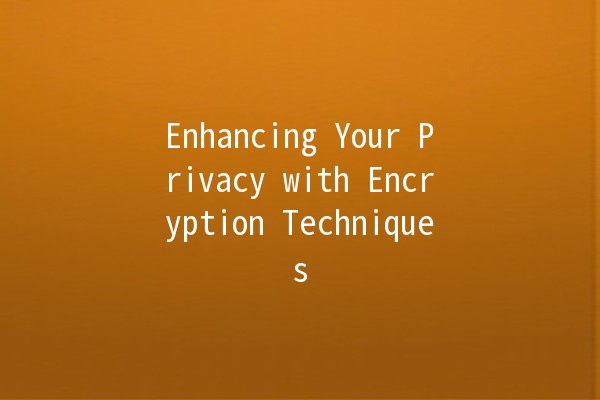




In our digital age, privacy is of paramount importance. With the increasing amount of personal data shared online, individuals and organizations alike are seeking ways to protect sensitive information. One of the most effective methods for preserving privacy is through encryption technology. This article will delve deep into various encryption techniques, providing practical tips for elevating your privacy and ensuring that your data remains secure.
Encryption is the process of converting information or data into a code to prevent unauthorized access. The goal is to ensure that only authorized users can read the data. There are two main types of encryption: symmetric and asymmetric.
In symmetric encryption, the same key is used to both encrypt and decrypt the information. This method is generally faster and is often used for bulk data encryption.

Asymmetric encryption uses a pair of keys: a public key and a private key. The public key is shared with everyone, while the private key is kept secret by the owner. This technique is commonly used in secure communications, such as SSL certificates.
Here are five actionable tips to enhance your privacy through encryption:
What It Is: Full disk encryption (FDE) encrypts all the data on your hard drive, safeguarding it from unauthorized access.
Application Example: Enable BitLocker on Windows or FileVault on macOS. FDE ensures that even if your device is lost or stolen, your data remains secure and inaccessible.
What It Is: Encrypting individual files or folders adds an additional layer of security, especially for sensitive information such as financial records or personal documents.
Application Example: Use tools like VeraCrypt or AxCrypt to encrypt specific files. Always use strong, unique passwords for these encrypted files to optimize security.
What It Is: toend encryption (E2EE) ensures that only the sender and the recipient can access the content of the communication.
Application Example: Switch to encrypted messaging applications such as Signal, WhatsApp, or Telegram. These services ensure that your conversations are not accessible to third parties, including the service providers.
What It Is: Email encryption protects the contents of your emails from being intercepted during transmission.
Application Example: Use services like ProtonMail or implement encryption tools like PGP (Pretty Good Privacy) for your existing email clients. This ensures that your emails are encrypted endtoend and can only be read by the intended recipient.
What It Is: Cybersecurity is a constantly evolving field. Keeping your encryption software updated ensures you are protected against the latest threats and vulnerabilities.
Application Example: Regularly check for updates for your encryption tools and apply patches immediately when new versions are released. This proactive approach helps maintain a high level of data security.
Encryption is crucial because it protects sensitive information such as personal data, financial records, and communications from unauthorized access. In a world where data breaches and cyberattacks are increasingly common, utilizing encryption can safeguard your information from falling into the wrong hands.
While encryption significantly enhances your privacy, it does not guarantee complete anonymity. Encryption can protect your data, but other factors, such as IP address tracking and browser fingerprints, still pose risks to your anonymity online. Additional tools like VPNs (Virtual Private Networks) can be used in conjunction with encryption for better privacy.
While encrypting your data can have a slight impact on performance, modern devices are equipped to handle encryption with minimal effect. The benefits of enhanced security outweigh the minor performance costs, making it a worthwhile tradeoff.
Yes, encryption is legal in most countries. However, some jurisdictions have regulations regarding the use of strong encryption, particularly in relation to law enforcement access. It's essential to be aware of your local laws surrounding encryption use.
If you forget your encryption password, access to your encrypted files may be permanently lost. It's crucial to use a secure password manager to store your passwords or to create recovery keys, where applicable, to avoid losing access to your encrypted data.
While encryption provides significant benefits, there are some downsides. These include increased complexity in accessing files, potential performance issues, and the risk of losing access if passwords are forgotten. Nevertheless, the advantages of protecting your privacy often outweigh these drawbacks.
By understanding and implementing these encryption techniques, you can significantly enhance your online privacy and protect your sensitive data from unauthorized access. The digital landscape is constantly changing, and taking proactive measures to secure your information is more crucial than ever. Remember, in an age where data is one of the most valuable assets, safeguarding that data should be a top priority.🔒